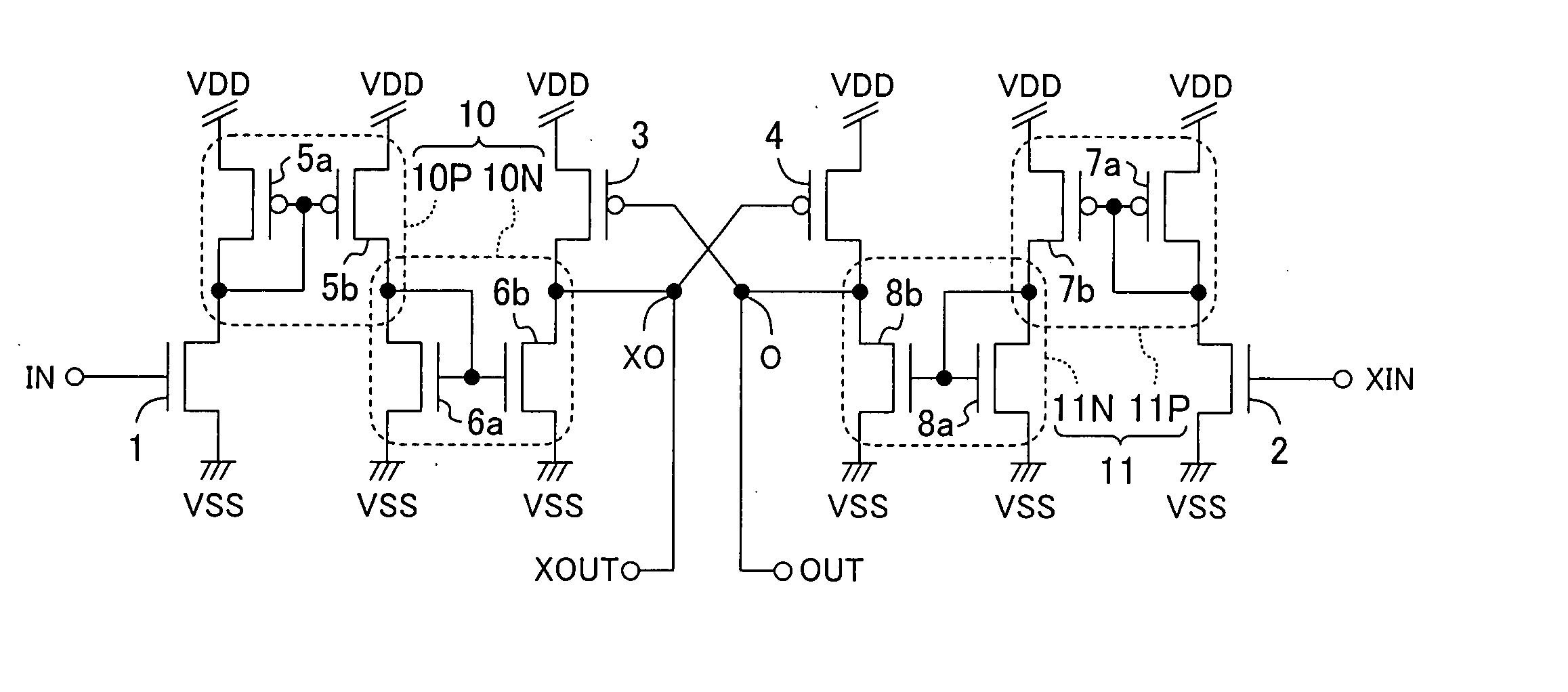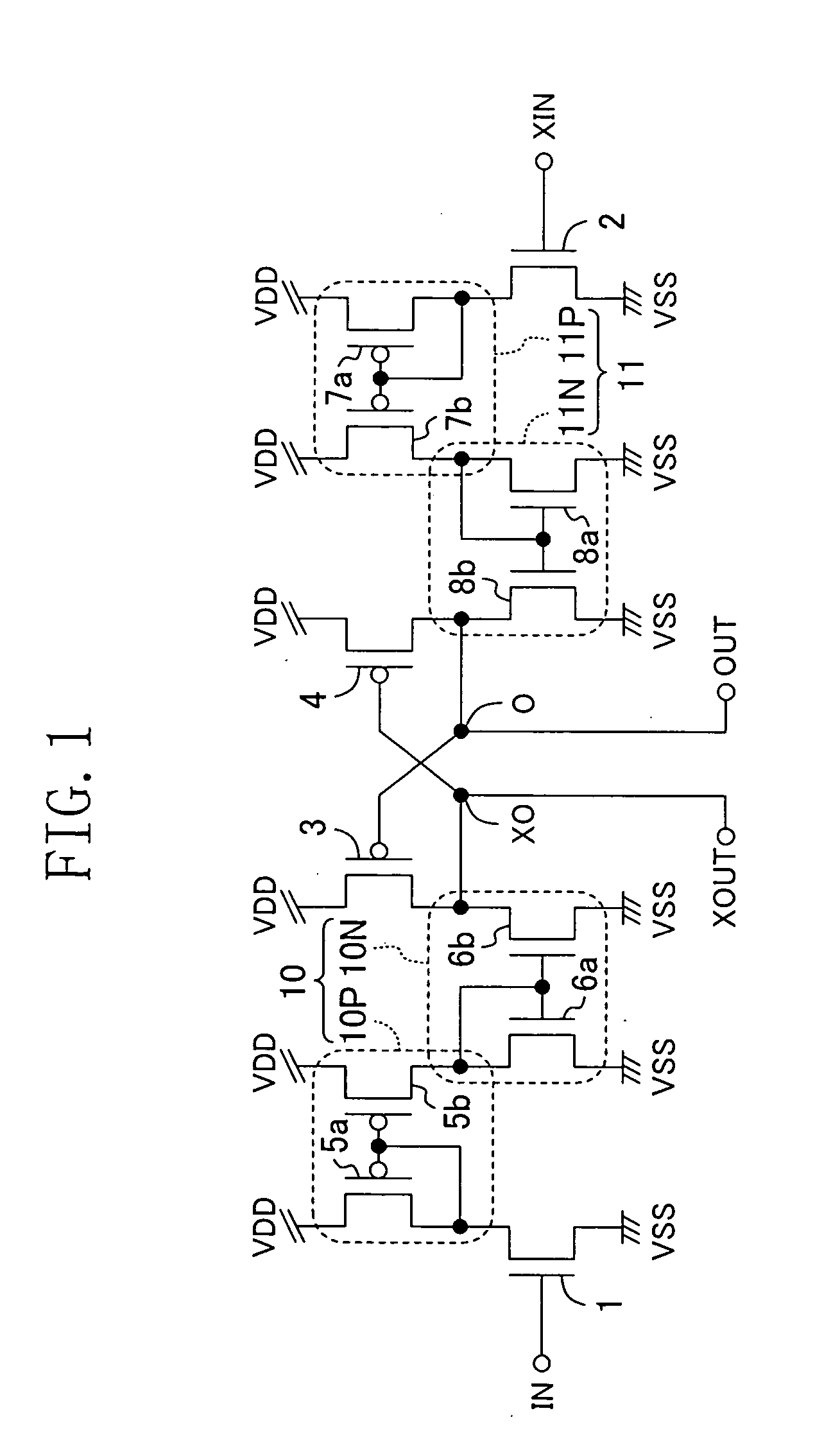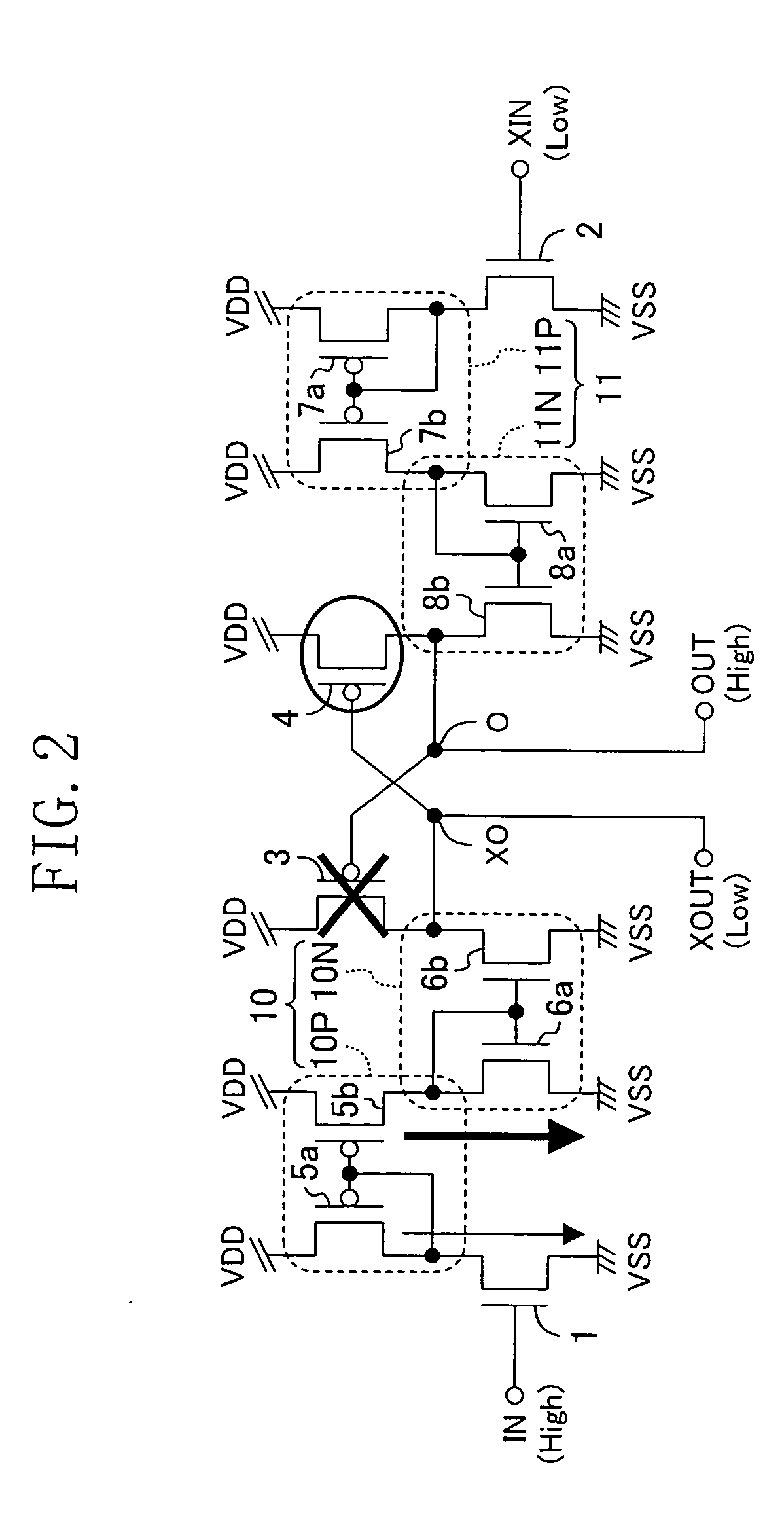Level shift circuit
a level shift circuit and level shift technology, applied in logic circuits, logic circuit coupling/interface arrangements, pulse techniques, etc., can solve the problems of deteriorating operation speed of the level shift circuit as a whole, and become conspicuous, so as to improve the current driving capability of the inverted output node and the change to the h level of the output node, the operation speed of the level shift circuit is increased, and the speed of the inverted output node and the inverted output no
- Summary
- Abstract
- Description
- Claims
- Application Information
AI Technical Summary
Benefits of technology
Problems solved by technology
Method used
Image
Examples
embodiment 1
FIG. 1 shows a level shift circuit of a first embodiment of the invention.
Shown in the diagram are a high voltage power source VDD, a ground power source VSS, an input terminal IN, an inverted input terminal XIN, an output node O, an inverted output node XO, an output terminal OUT connected to the output node O, and an inverted output terminal XOUT connected to the inverted output node XO. It is not always necessary to provide a pair of the output terminal OUT and the inverted output terminal XOUT. It is sufficient to provide either the terminal OUT or XOUT as necessary.
Reference numeral 1 denotes a first N-type signal input transistor and an input signal (to which the same reference characters “IN” as those of the input terminal IN are designated) of the input terminal IN is input to the gate electrode of the first N-type transistor 1. Reference numeral 2 denotes a second N-type signal input transistor and an inverted input signal (to which the same reference characters “XIN” a...
embodiment 2
FIG. 3 shows a level shift circuit of a second embodiment of the invention.
The level shift circuit of the diagram is obtained by improving the level shift circuit of the first embodiment to reduce the current steadily flowing in the first and second current mirror circuits 10 and 11.
Specifically, the level shift circuit of FIG. 3 is obtained by adding two P-type transistors 15 and 16 to the configuration of the level shift circuit of the first embodiment. In the P-type transistor 15, the source electrode is connected to the high voltage source VDD, the drain electrode is connected to the P-type current mirror circuit 10P in the first current mirror circuit 10, and the gate electrode is connected to the output node O and receives the output signal O. Similarly, in the other P-type transistor 16, the source electrode is connected to the high voltage source VDD, the drain electrode is connected to the P-type current mirror circuit 11P of the second current mirror circuit 11, and th...
embodiment 3
FIG. 8 shows a level shift circuit of a third embodiment of the invention.
The level shift circuit of FIG. 8 is obtained by further improving the level shift circuit of the second embodiment shown in FIG. 3. Specifically, the level shift circuit of FIG. 8 is obtained by adding first and second change speed accelerating circuits 20 and 21 to the level shift circuit of FIG. 3. The first and second change speed accelerating circuits 20 and 21 are to accelerate change speed from the L level to the H level of the inverted output node XO and the output node O as will be described later.
The first change speed accelerating circuit 20 includes a first P-type transistor 30 connected in parallel with the P-type transistor 5a on the input side as a component of the P-type current mirror circuit 10P of the first current mirror circuit 10, and a first buffer circuit 33 constructed by two inverter circuits 31 and 32. The first P-type transistor 30 is set to have a large gate width and extremely...
PUM
 Login to View More
Login to View More Abstract
Description
Claims
Application Information
 Login to View More
Login to View More - R&D
- Intellectual Property
- Life Sciences
- Materials
- Tech Scout
- Unparalleled Data Quality
- Higher Quality Content
- 60% Fewer Hallucinations
Browse by: Latest US Patents, China's latest patents, Technical Efficacy Thesaurus, Application Domain, Technology Topic, Popular Technical Reports.
© 2025 PatSnap. All rights reserved.Legal|Privacy policy|Modern Slavery Act Transparency Statement|Sitemap|About US| Contact US: help@patsnap.com



